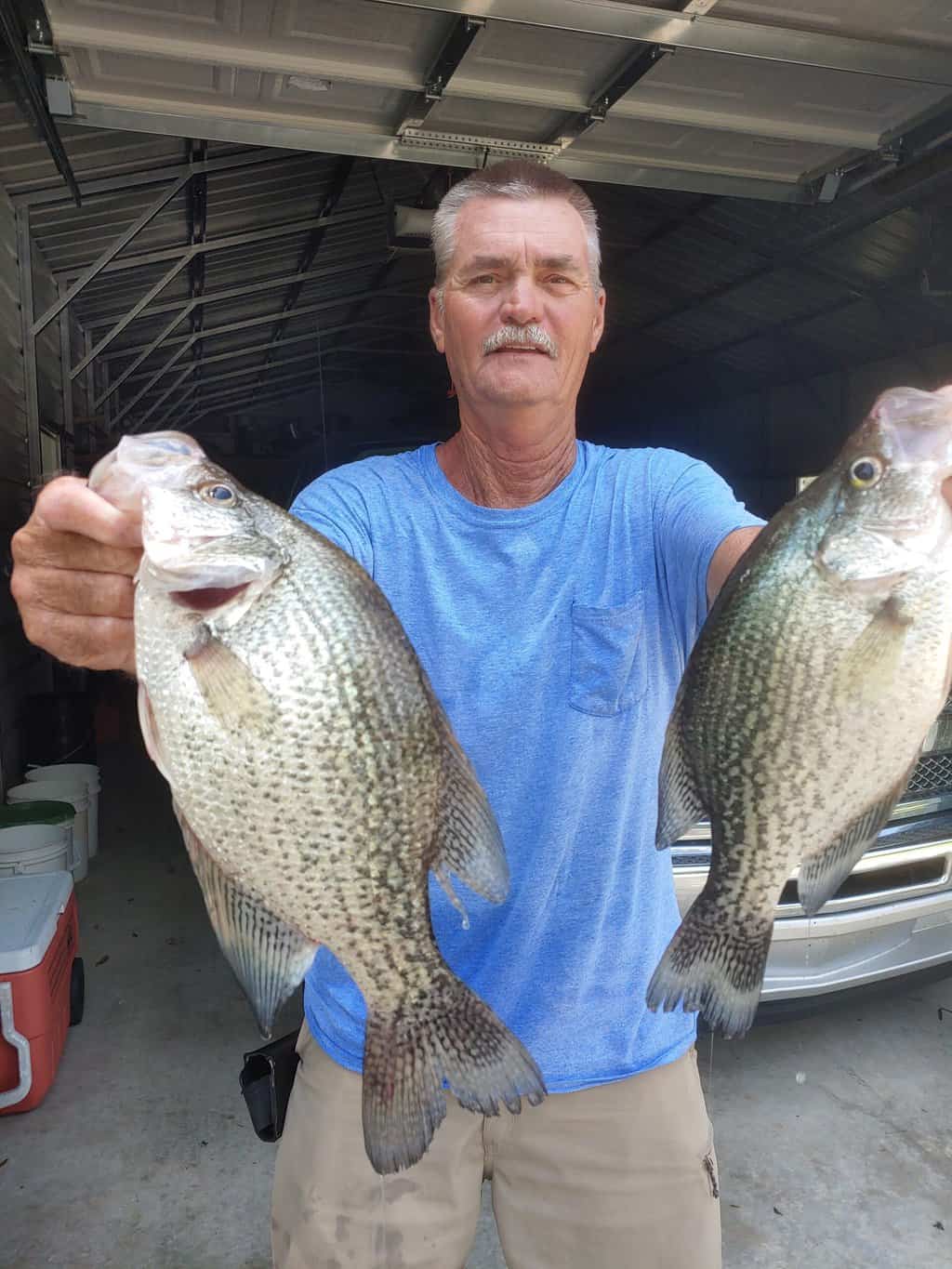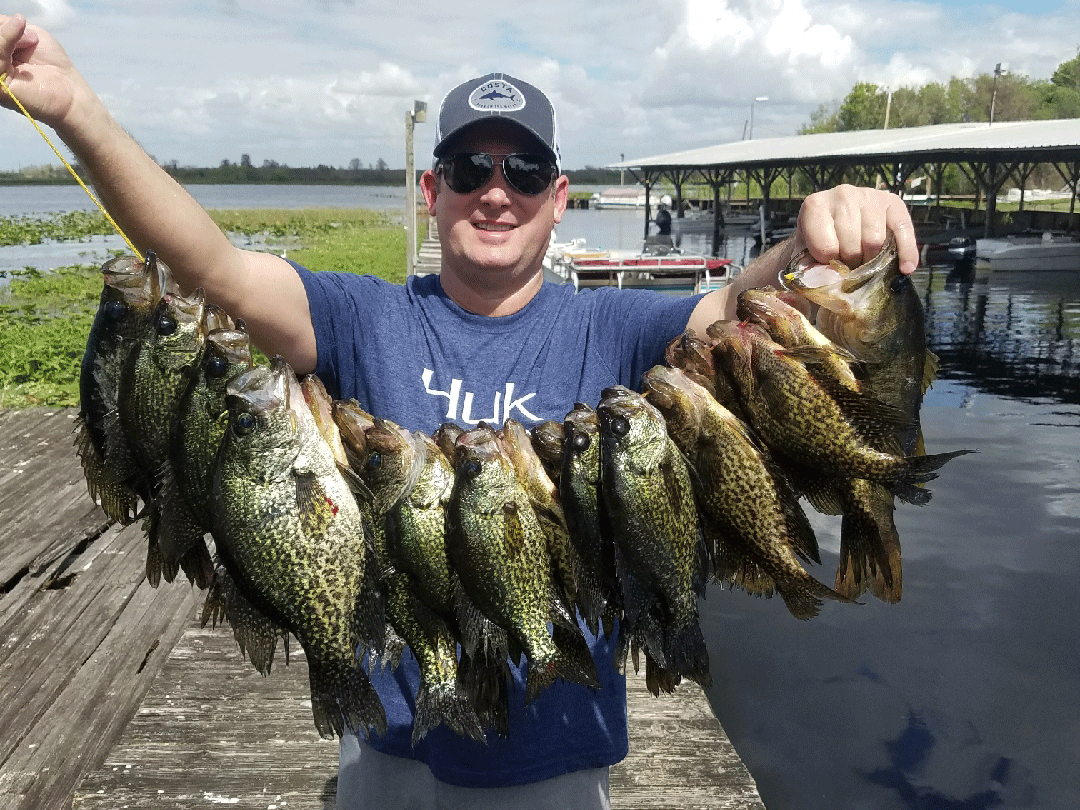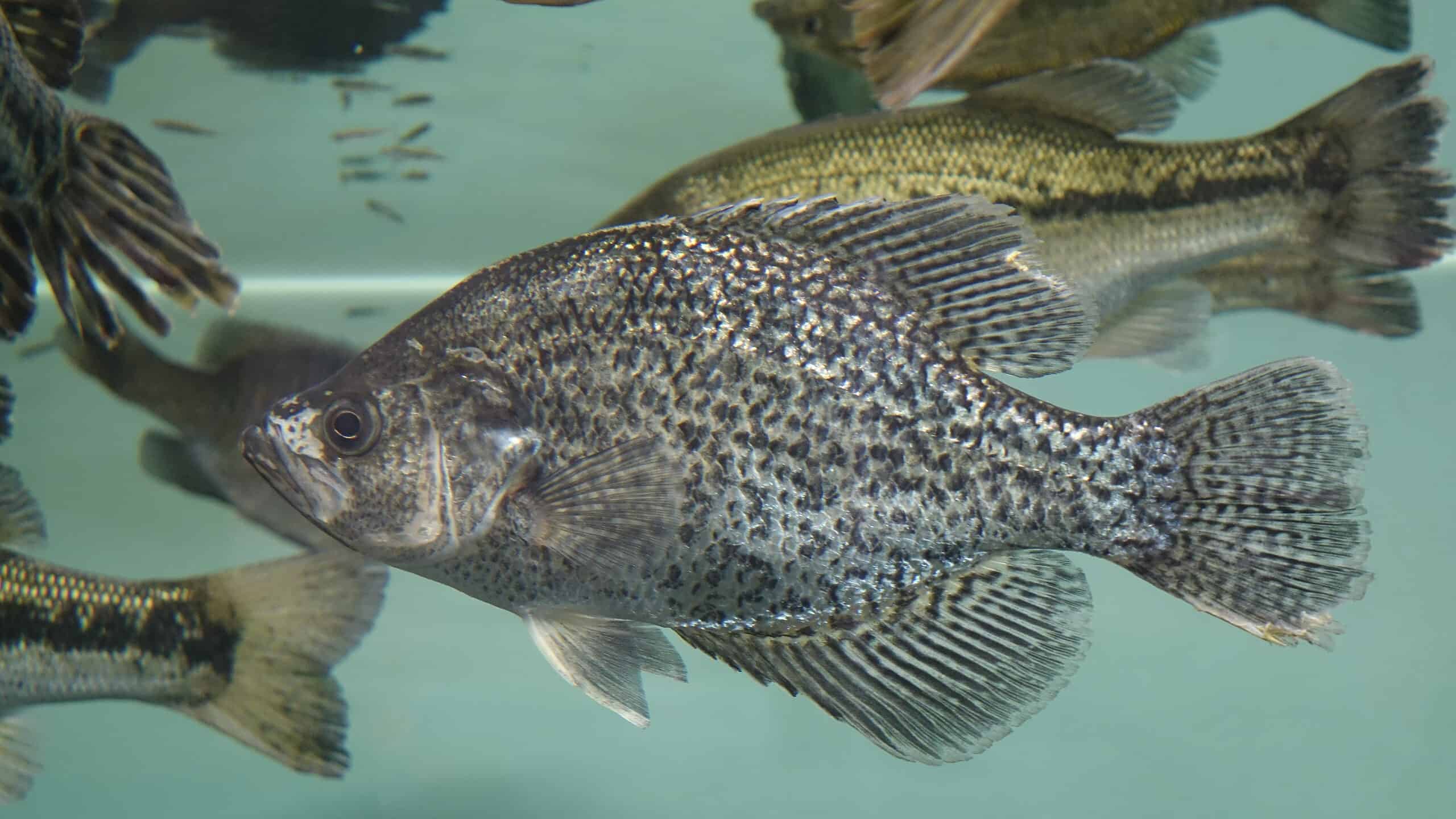Have you ever been out on the water, maybe with friends, and someone says “crappie,” and you just sort of wonder if you are saying it right? It's a common thing, really, and a lot of folks get a little tangled up on how to say the name of this much-loved fish. You know, that feeling when you are talking about fishing, and you want to sound like you know your stuff? Well, when it comes to the crappie, its name can certainly throw a curveball. It's a fish that brings so much joy to anglers, like when Phil and I had an early morning crappie fishing trip with our friends from Oliver Springs who came down to fish Chickamauga Reservoir with us. We put them on our prime spot, and it was a great day, but the name itself, that's a whole different story for some.
So, you might hear it said a few different ways, and honestly, that can be a bit confusing. Is it "crap-ee" or "crop-ee"? That is that the big question many people have. It is almost like a little secret handshake among fishermen, where knowing the correct way to say it makes you feel more connected to the sport. This fish, famous for its delicious taste and fun fight, has a name that just seems to trip up tongues more often than not. We are here to clear things up, so you can talk about your fishing adventures with total confidence, whether you are discussing a big catch or just planning your next outing.
Today, we are going to get to the bottom of this pronunciation puzzle, giving you the real scoop on how to say "crappie" the way most people do. We will also touch on why it matters and perhaps, where this interesting name came from in the first place. You see, understanding the name is just another part of appreciating this wonderful fish and all the fun it brings to our waters. It's a simple thing, really, but it makes a difference when you are chatting about fishing spots, techniques, or even just a tasty crappie recipe you just watched John Godwin (from Duck Commander) fixing fresh crappie, where he put all the fillets in a large bowl and covered them with sour cream.
Table of Contents
How Do You Actually Say "Crappie"?
The Origin Story of the Crappie's Name
Crappie Fishing: More Than Just a Name
Finding the Best Crappie Waters
Crappie Fishing Techniques and Gear
Understanding Crappie Spawning and Behavior
FAQs About Crappie and Its Name
How Do You Actually Say "Crappie"?
The pronunciation of "crappie" is a topic that comes up quite a bit among anglers and even just curious folks. It is a word that, on paper, looks like it should be said one way, but in common speech, it is often said another. Most people, especially those who spend a lot of time fishing for them, say it with a long "o" sound, like "crop-ee." Yes, that's right, like the word "crop" followed by "ee." This is the widely accepted way to say it, and it is what you will hear from seasoned fishermen across the country. It is pretty much the standard, so if you want to sound like you have been around a few fishing holes, that is the way to go.
Now, some people, particularly those new to fishing or who have just read the word, might say it with a short "a" sound, like "crap-ee." While this might seem like the obvious pronunciation based on how the word is spelled, it is generally not the preferred or common way. You know, it is one of those words that just defies its spelling a little. So, if you are ever unsure, just remember the "crop-ee" sound. It will help you fit right in with the fishing crowd. It is really a simple trick, but it makes a big difference when you are talking about these wonderful fish.
It is interesting how language works, isn't it? A word can look one way and be said another, and "crappie" is a perfect example of that. This little linguistic quirk adds a bit of character to the fish itself. So, next time you are talking about catching a big slab, you can confidently say "crop-ee," knowing you are speaking the language of the water. This is, in a way, just a small part of the fishing experience, learning the lingo. You will find that many terms in fishing have their own unique ways of being said, and this is just one of them. You can check out how words are often pronounced by looking them up in a reliable source, like an online dictionary. For example, a good place to start might be a reputable dictionary like Merriam-Webster.
The Origin Story of the Crappie's Name
Where did the name "crappie" even come from? That is a very good question, and it has a pretty interesting history. The word "crappie" actually comes from the French-Canadian word "crapet," which was a term used to describe various sunfish. You see, the early settlers and fur traders in North America, many of whom were French-speaking, encountered these fish and gave them names based on their own language. "Crapet" was a general term for a small, pan-sized fish, which is exactly what crappies are known for being. So, it is not some random word; it has roots in the early days of North American exploration and settlement.
Over time, as English speakers became more dominant in the regions where these fish were found, the French word "crapet" was adapted into "crappie." This kind of linguistic evolution happens a lot, where words from one language are borrowed and changed to fit the sounds and spellings of another. The pronunciation, "crop-ee," likely stuck around because it was closer to the original French sound. It is a little piece of history swimming right there in our lakes and rivers, if you think about it. This fish, so common today, carries a name that tells a story of cultural exchange and adaptation, which is pretty neat.
It is fascinating to consider how names like this stick around for centuries, passed down through generations of anglers. The crappie, with its distinctive name, has become a true icon of freshwater fishing across the United States. Its name, in some respects, is as much a part of its identity as its speckled appearance or its fighting spirit. So, when you are out there trying to catch a world record crappie or even a state record crappie, you are connecting with a long tradition that includes the very name of the fish itself. You start by fishing in reservoirs, rivers or ponds where big crappie live, and you are also, in a way, connecting with history.
Crappie Fishing: More Than Just a Name
Beyond how you say its name, the crappie is, of course, a fantastic fish to pursue. Phil and I, for instance, had an early morning crappie fishing trip that was just great. We were out with our friends from Oliver Springs who came down to fish Chickamauga Reservoir with us, and we put them on our prime spot. It is that kind of shared experience that makes crappie fishing so special. The excitement of the bite, the pull on the line, and the delicious reward at the end of the day—these are the things that truly matter. The name is just a small part of the whole picture, really.
Crappie fishing is also something that brings up the same old questions every year, every spring. Are the crappie spawning yet? The answer is always the same: it depends on where you are fishing, water clarity, and water temperature. These are the kinds of details that serious crappie anglers pay attention to. Knowing the fish's habits and its environment is key to success. We have been very successful in locating deep post-spawn crappie on our trips, fishing various structures from bluffs, deep points, delta structure drop-offs, and other places like that. It is all about understanding the fish's behavior.
The popularity of crappie means there is a whole community built around it. You see forums, websites, and groups dedicated to sharing tips and stories. For example, if you register on crappie.com, you can get a free decal and a lot less ads too. It is a way to connect with other people who love this fish as much as you do. This community aspect is a big part of what makes crappie fishing so engaging. You can learn so much from others, whether it is about new baits like the Crappie Magnet Roo, which Jeff Smith, owner of Leland's Lures, said has a pouch like a kangaroo where you can insert your slab bite, or just general crappie fishing tips and techniques for catching, helping, and learning how to fish using a rod, reel, hook, and line for crappie specks.
Finding the Best Crappie Waters
Locating good crappie waters is often half the battle, and it is something anglers are always talking about. Crappie waters include small strip pits, lakes, and reservoirs. These fish can be found in a lot of different places, which is pretty convenient. I was thinking about making up a list of crappie waters in Washington, grouped by county, and then I said, what the hell, and made this list. It is helpful to have resources like that, to know where the fish are. Knowing where to go is just as important as knowing how to fish, in a way.
Big Hill Reservoir is a great example, located 8 miles west of Parsons and about 4.5 miles from Cherryvale. Big Hill is 1240 surface acres, so it is a decent size. Knowing specific locations like this can really help anglers plan their trips. It is not just about the big, famous lakes either; sometimes the best spots are those smaller, less-known places. The days of the lake kicking out huge hybrid crappie frequently are over, according to the regulars, from what I have read the last several years the lake biologist began stocking different types of fish, which can change the dynamics a bit. But there are always new spots to discover, or old spots that come back to life.
It is always a good idea to do a little research before you head out. Checking local reports, talking to bait shop owners, or even just looking at online forums can give you a lot of useful information. You can find out about water levels, clarity, and recent catches, which are all important details. As a matter of fact, knowing the local conditions can make all the difference between a slow day and a successful one. This kind of preparation is pretty much essential for any serious angler, and it definitely pays off when you are targeting crappie.
Crappie Fishing Techniques and Gear
When it comes to actually catching crappie, there are many techniques and pieces of gear that can help. One popular method is spider rigging, where you use multiple rods spread out from the boat, making it look a bit like a spider. While spider rigging is an effective technique for catching crappie, there are times when other methods work better. The last thing you want is to have eight crappie rods tangled together, so managing your gear is important. It is all about finding what works best for the conditions you are fishing in that day.
Beyond spider rigging, there are other ways to target crappie. Jigging, casting small lures, or even using live bait under a bobber are all common and effective. The key is to understand what the fish are doing and where they are holding. We fished 9 trips and have been very successful in locating deep post-spawn crappie, which means we had to adapt our techniques to reach them. Fishing various structures from bluffs, deep points, delta structure drop-offs, and other similar places requires different approaches. It is not a one-size-fits-all kind of fishing, which is why it stays interesting.
Gear plays a big role too. You need the right rod, reel, hook, and line for crappie specks. Light tackle is usually preferred because crappie have a delicate bite. There are also specific baits, like the "Crappie Magnet Roo," a new bait that Jeff Smith, owner of Leland's Lures, continued, "we take the pouch like a kangaroo where you can insert your slab bite into it." Innovations like this are always coming out, offering new ways to entice these fish. Keeping up with new gear and techniques can really improve your chances of a good catch. It is almost like a continuous learning process, which is part of the fun.
Understanding Crappie Spawning and Behavior
Understanding when and how crappie spawn is a huge part of being a successful crappie angler. It is the same old question every year, every spring: Are the crappie spawning yet? The answer is always the same: it depends on where you are fishing, water clarity, and water temperature. Crappie typically move into shallower waters to spawn when the water temperature gets into the mid-50s to low-60s Fahrenheit. Knowing these temperature ranges is pretty much essential for finding them during this crucial time. It is a very predictable cycle, if you know what to look for.
After the spawn, crappie often move to deeper waters, becoming what we call "post-spawn crappie." We have been very successful in locating deep post-spawn crappie on our trips. These fish can be found around various structures like bluffs, deep points, delta structure drop-offs, and other submerged features. They are often looking for cooler water and cover after the strenuous spawning period. This shift in behavior means anglers need to adjust their tactics, moving from shallow-water presentations to deeper jigging or trolling. It is a bit like solving a puzzle, figuring out where they went.
There is a lot of information out there about crappie behavior, and it is always worth learning more. I found an article in North American Fisherman magazine called "Crappie by Degrees" and thought it may be beneficial to some. It is a long read, but pretty informative. Articles like these help anglers understand the science behind the fish's movements and habits, which can lead to more successful trips. Knowing about their feeding patterns, how they react to different weather, and their preferred habitats just makes you a better angler, honestly. You can learn more about crappie fishing on our site, and also check out tips for finding the best fishing spots.
FAQs About Crappie and Its Name
Many people have questions about crappie, especially about how to say its name. Here are some common ones that come up quite a bit.
How do you pronounce crappie fish?
Most people, especially those who fish for them regularly, pronounce "crappie" as "crop-ee." It is like the word "crop" followed by the "ee" sound. This is the widely accepted way to say it, and it is what you will hear from experienced anglers. It is a good way to fit in with the fishing community, so to speak.
Is crappie pronounced crop or crap?
The correct and most common pronunciation is "crop," not "crap." So, it is "crop-ee." While the spelling might suggest the short "a" sound, the long "o" sound is what is generally used. It is one of those words that has a bit of a tricky pronunciation for some, but once you know it, it is pretty simple.
Where does the name crappie come from?
The name "crappie" comes from the French-Canadian word "crapet," which was a term used for various small sunfish. Early French-speaking settlers in North America used this word, and it later evolved into "crappie" in English. The pronunciation "crop-ee" is thought to be closer to the original French sound. It is a little piece of history in the name itself.



